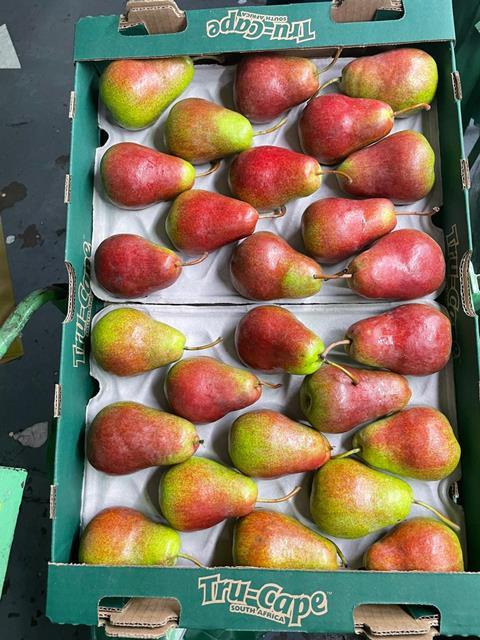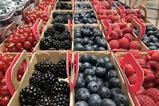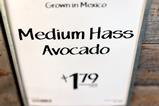South African exporter prepares to sell first commercial volumes of the variety, as well as its largest ever Cheeky crop

South African exporter Tru-Cape Fruit Marketing expects a pear season full of promise in 2024/25, with its first ever commercial volumes of red blush variety Cape Blush, and its largest ever crop of Cheeky.
“We are looking forward to a solid harvest with good volumes, which is encouraging,” says head of procurement Calla du Toit.
“This year marks the first time some of our new blush pear selections are bearing fruit. We expect a fruitful blushed pear season with enhanced colour across the board.”
Blush pears have generated a lot of excitement in the industry, particularly with strong demand in the Far East and Middle East, according to Tru-Cape managing director Roelf Pienaar.
“The interest in blushed pear varieties is on the rise, and we have numerous global opportunities to market these pears,” he says.
Like many of the company’s new blushed varieties, Cape Blush was developed by Agricultural Research Council breeder Taaibos Human.
Known then as Rosy-Lwazi, it was originally identified 16 years ago and first harvested in 2021 on Eselfontein, a Tru-Cape farm near Ceres.
Jeanne Fourie, a new variety specialist at Tru-Cape, says Cape Blush is harvested just before or shortly after New Year, which makes it one of the earliest pear varieties in South Africa.
“We’re opening our season with this coveted variety, known for its lovely red blush, so we have high hopes for its market performance, particularly in the East.”
Meanwhile, an improved selection of original variety Rosemarie derived from Forelle and Bon Rouge, called Rosemarie Select, is also coming into production.
“Growers are familiar with Rosemarie, but the introduction of Rosemarie Select, with its improved colour, presents them with an opportunity to boost their pack-outs,” says Fourie.
“Local selections adapt better to our climate, develop colour more effectively, and need fewer chilling hours than some of the imported varieties.”
According to Pienaar, the fact that Europe’s pear harvest is slightly below average this year should create favourable market conditions for South African fruit.
“We do have some concerns regarding the United Kingdom, where a normal-sized crop is expected,” he notes, however. “There is a significant movement to support local producers, which could pose challenges for us.”








